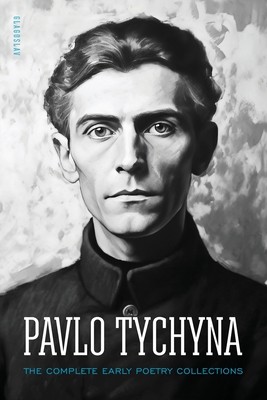
- We will send in 10–14 business days.
- Author: Pavlo Tychyna
- Publisher: GLAGOSLAV PUBLICATIONS B.V.
- Year: 2017
- ISBN-10: 1911414208
- ISBN-13: 9781911414209
- Format: 15.2 x 22.9 x 1.2 cm, softcover
- Language: English
- SAVE -10% with code: EXTRA
Reviews
Description
Pavlo Tychyna (1891-1967) is arguably the greatest Ukrainian poet of the twentieth century and has been described as a "tillerman's Orpheus" by Ukrainian poet and literary critic Vasyl Barka. With his innovative poetics, deep spirituality and creative word play, Tychyna deserves a place among the pantheon of his European contemporaries such as T.S. Eliot, Ezra Pound, Rainer Maria Rilke, Federico Garcia Lorca, and Osip Mandelstam. His early collections Clarinets of the Sun (1918), The Plow (1920), Instead of Sonnets and Octaves (1920), The Wind from Ukraine (1924), and his poetic cycle In the Orchestra of the Cosmos (1921) mark the pinnacle of his creativity and poetically document the emotional and spiritual toll of the Revolution of 1917 as well as the Civil War and its aftermath in Ukraine. Tychyna coined the term "Clarinetism" to describe his earliest works, which intrinsically exhibit the clarity and the haunting sound of a clarinet. He harkens back to ancient Greek literature to form what has been called the "tragic lyric" in his short collection Instead of Sonnets and Octaves, which gives a personal, humanistic understanding to the tragic events of the Revolution. John Fizer has noted Tychyna's close affinity with Walt Whitman's cosmism, particularly in his cycle In the Orchestra of the Cosmos. While Tychyna in may ways displays the moral conscience of his times in his early works, later in his life he acquiesced to Soviet authorities in order to survive the horrors of Stalin's regime. He was forced by authorities to refuse a nomination for the Nobel Prize, the only reason for which would have been his Ukrainian ethnicity. This edition of Tychyna's complete early works includes translations of all his major early collections as well as his poetic masterpieces "Mother was Pealing Potatoes," "Funeral of My Friend," and his highly patriotic "In Memory of the Thirty." The volume includes a guest introduction by eminent Ukrainian poet Viktor Neborak.
Translated by Michael M. Naydan.
EXTRA 10 % discount with code: EXTRA
The promotion ends in 20d.08:13:54
The discount code is valid when purchasing from 10 €. Discounts do not stack.
- Author: Pavlo Tychyna
- Publisher: GLAGOSLAV PUBLICATIONS B.V.
- Year: 2017
- ISBN-10: 1911414208
- ISBN-13: 9781911414209
- Format: 15.2 x 22.9 x 1.2 cm, softcover
- Language: English English
Pavlo Tychyna (1891-1967) is arguably the greatest Ukrainian poet of the twentieth century and has been described as a "tillerman's Orpheus" by Ukrainian poet and literary critic Vasyl Barka. With his innovative poetics, deep spirituality and creative word play, Tychyna deserves a place among the pantheon of his European contemporaries such as T.S. Eliot, Ezra Pound, Rainer Maria Rilke, Federico Garcia Lorca, and Osip Mandelstam. His early collections Clarinets of the Sun (1918), The Plow (1920), Instead of Sonnets and Octaves (1920), The Wind from Ukraine (1924), and his poetic cycle In the Orchestra of the Cosmos (1921) mark the pinnacle of his creativity and poetically document the emotional and spiritual toll of the Revolution of 1917 as well as the Civil War and its aftermath in Ukraine. Tychyna coined the term "Clarinetism" to describe his earliest works, which intrinsically exhibit the clarity and the haunting sound of a clarinet. He harkens back to ancient Greek literature to form what has been called the "tragic lyric" in his short collection Instead of Sonnets and Octaves, which gives a personal, humanistic understanding to the tragic events of the Revolution. John Fizer has noted Tychyna's close affinity with Walt Whitman's cosmism, particularly in his cycle In the Orchestra of the Cosmos. While Tychyna in may ways displays the moral conscience of his times in his early works, later in his life he acquiesced to Soviet authorities in order to survive the horrors of Stalin's regime. He was forced by authorities to refuse a nomination for the Nobel Prize, the only reason for which would have been his Ukrainian ethnicity. This edition of Tychyna's complete early works includes translations of all his major early collections as well as his poetic masterpieces "Mother was Pealing Potatoes," "Funeral of My Friend," and his highly patriotic "In Memory of the Thirty." The volume includes a guest introduction by eminent Ukrainian poet Viktor Neborak.
Translated by Michael M. Naydan.


Reviews